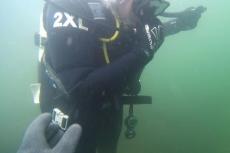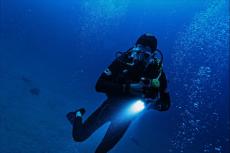Toothed whales show signs of Alzheimer's disease
Necropsies of beached toothed whales show that older animals have brain changes similar to those seen in humans with Alzheimer's disease.
A study of 22 toothed whales which died in strandings along the Scottish coast shows that some of them exhibited hallmarks of Alzheimer’s disease, and this might have—at least in part—caused the stranding incident.
The dolphin species involved in the study were five species: Risso’s dolphins, long-finned pilot whales, white-beaked dolphins, harbour porpoises and bottlenose dolphins.
As part of the study, researchers examined the animals’ brains for the presence of brain pathology that were hallmarks of Alzheimer’s disease, like the formation of amyloid-beta plaques, the accumulation of phosphor-tau and gliosis (a change in cell numbers due to damage to the central nervous system).
According to co-author Mark Dagleish, a senior clinician in anatomic pathology from the University of Glasgow, “Critically, [it] examined the whole brains to provide lesion (abnormality) profiles using more markers of Alzheimer’s disease.”
Dementia-related pathologies
It was found that all the aged dolphins in the study (18, out of the 22 specimens) had amyloid-beta plaques. In fact, three of them—a long-finned pilot whale, a white-beaked dolphin and a bottlenose dolphin—also had a number of other dementia-related pathologies in their brains.
Co-author Tara Spires-Jones, a professor at the University of Edinburgh, said that the researchers were fascinated to see that the brain changes in aged dolphins were similar to those in human ageing and Alzheimer’s disease. “Whether these pathological changes contribute to these animals stranding is an interesting and important question for future work,” she added.
Cognitive deficits
Dagleish said, “These are significant findings that show, for the first time, that the brain pathology in stranded odontocetes [toothed whales] is similar to the brains of humans affected by clinical Alzheimer’s disease. While it is tempting at this stage to speculate that the presence of these brain lesions in odontocetes indicates that they may also suffer from the cognitive deficits associated with human Alzheimer’s disease, more research must be done to better understand what is happening to these animals.”
The study findings appear to support the “sick leader” theory, in which an aged leader becomes lost, disoriented or confused and subsequently leads a pod of healthy dolphins into dangerously shallow waters.




























